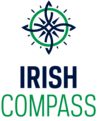Sales

Sales
Through the sales industry, businesses are able to contact potential buyers of their products and services, inform customers about features and benefits, answer customers' questions, negotiate prices, and take orders.
The industry is often divided into two sectors: B2B (business-to-business) and B2C (business-to-customer). Professional (B2B) sales can be described as consultative - sales people need to have good interpersonal skills, getting along with many types of people. They also must be able to listen to the customer's needs and preferences, both before and after a sale. Success often depends on building a relationship with the client. In a B2C sales job, the worker might sell property insurance to a homeowner or a tropical vacation package for a couple's honeymoon.
Job Title Examples:
- Salesperson
- Sales Consultant
- Sales Executive
- Account Executive
- Sales Representative
Skills Needed:
- Interpersonal skills
- Active listening
- Communication
- Time management
- Critical thinking
- Problem solving
Find Opportunities

Using IrishCompass, LinkedIn, and ND’s alumni association directory called myND is the best way to start on the networking front. Building relationships and networking is a key factor when it comes to finding out about opportunities in this sector as well. Stay in touch with ND alumni groups in whatever city you’re pursuing a career in - they will help you get connected and find potential opportunities.
Job Databases:
Industry Timeline
Recruiting for Sales is year-round, and it is not unusual to see many opportunities in the Spring.
Applying and Interviewing
Resumes
Your resume will often be the first impression for a potential employer. You want to make sure that your resume is concise, direct, and specific. Ensure that your resume is tailored for the position and for the industry. Highlighting relevant coursework can demonstrate your fit for a particular position. Review our guide on resumes for more information on how to construct one.
Cover Letters
A cover letter introduces you to a potential employer. Use the position description to make specific connections between your skills and experience and what the organization is looking for in a candidate. The cover letter should be concise and well-written—if a potential employer reads your cover letter and is intrigued, they will then read your resume. Your cover letter should not repeat your resume verbatim, but enhance it. Together the cover letter and resume can help land you an interview. Review our guide on cover letters for more information on how to construct one.
Interviewing
Most interviews will contain a mixture of resume based questions (questions about your past experience) and behavioral based questions (your ability to handle prospective situations at work. Most positions will begin with an interview that has a mix of these questions. Review our guide on common interview questions.
Preparation is extremely important for interviews. Research the company/organization, current and previous projects they’ve worked on, and even the people that you’re interviewing with. This will not only help provide talking points but will show your knowledge and genuine interest in the position. Utilize our resources on how to best prepare yourself to excel in your interview.
Online Resources
Campus Resources
Career Counselor:

Ray Vander Heyden
Assistant Director, Accounting, Actuarial Science, Corporate Finance, Insurance, Real Estate
Schedule an Appointment
- Marketing Club
Employer Examples:
- AT& T
- Stryker
- General Electric
- E&J Gallo
Join Handshake:
Personalize your feed, explore your curiosities, and get updates that matter to you. Handshake is a dynamic system that works to match students with the most relevant resources and opportunities offered by our office including:
- Access to personalized job recommendations – This is based on major, career interests, and profile information such as skills and experiences. When students fill out their profile, they’ll be able to see jobs and internships that match their interests and skills.
- Ability to schedule one–on-one counseling appointments – Counseling appointments are able to be scheduled through Handshake and held virtually via Zoom.
- Ability to Interact with employers – Students can research contact information for local and national employers. Employers can also message students with opportunities and information.
- Connect with students across the country - Students can interact with their peers through messaging, get tips and advice, as well as network.
- Search for and apply to open positions - On Handshake, students can see jobs and internships posted specifically for them as well as employers actively recruiting from Notre Dame.